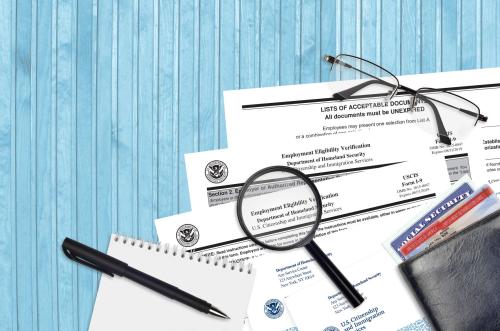The conflict that raged in Bosnia from 1992 to 1995 was characterized by a pattern of ethnically motivated attacks on civilian populations that came to be known as “ethnic cleansing.” The motivation for these attacks was to phsycially remove all people of different ethnicities from areas militarily dominated by a particular ethnic group.1 To a large extent, this tactic worked, with the population of Bosnia thoroughly “unmixed” and polarized into homogenous ethnic statelets by the end of the war. As a result, one of the central features of the internationally-led peacekeeping and civilian reconstruction mission in Bosnia was the extent to which it was concerned with facilitating the return of those displaced by the conflict and the reconstruction of a multi-ethnic society. The Dayton Peace Agreement (DPA), which ended the conflict in Bosnia, included an entire annex (Annex 7) regulating the return of refugees and displaced persons.2 While Annex 7 recognized the legal principle that displaced persons enjoyed the right to choose their destination, it also set out a clear policy preference for reversing ethnic cleansing through the facilitation of return.3
Property restitution was intimately connected with return in the text of Annex 7, beginning with the interlinked guarantees that “[a]ll refugees and displaced persons shall have the right freely to return to their homes of origin [and] to have restored to them property of which they were deprived in the course of hostilities….”4 The DPA also foresaw an internationally supervised body, the Commission for Real Property Claims (CRPC), with a mandate to “receive and decide claims for real property [which] has not been voluntarily sold or otherwise transferred … and where the claimaint does not now enjoy possession….”5 However, despite these powerful mandate tools, the international community in Bosnia rightly saw restitution as an extremely challenging task. The CRPC was overwhelmed early on by the sheer number of applications, with over 200,000 properties claimed in some 130 municipalities; a bottleneck exacerbated by CRPC’s lack of a clear enforcement mandate.6
As a result, although it would be an important early repository of property claims, the CRPC never came to play the central role envisioned for it in Bosnia’s restitution process. Meanwhile, efforts to implement Annex 7 by other means than restitution made little progress. Although a number of agreements to accept mutual quotas of returnees were negotiated among the parties to the DPA, these were hard to monitor and faced stiff resistance from local authority figures invested in maintaining ethnically pure political constituencies. As a result, enforcement of the domestic authorities’ Annex 7 obligation to facilitate restitution ultimately came to be the central tactic of the international community in facilitating return.
View complete statement
Bosna’da Çatısma Sonrası Mülk Tazmini: Yerinden Edilme Sonrası Tazminatla Kalıcı Çözümler Arasında Denge Kurmak – Turkish Translation
1 Use of the term “ethnicity” is somewhat misleading in the Bosnian context. In fact, all three main parties to the conflict were ethnically Slavs and shared a mutually comprehensible language. The primary difference between them lay in their religious confessions, and associated cultural differences.
2 General Framework Agreement for Peace in Bosnia-Herzegovina, 1995, 35 I.L.M. 75, Annex 7: “Agreement on Refugees and Displaced Persons.”
3 Id. Chapter Once, Article I (1) of Annex 7 states that “[t]he early return of refugees and displaced persons is an important objective of the settlement of the conflict in Bosnia and Herzegovina.” However, Article I (4) of the same Chapter clarifies that “[c]hoice of destination shall be up to the individual or family” and forbids the parties from interfering with such choices.
4 Id. Chapter One, Article I (1).
5 Id. Chapter Two, Article XI.
6 Id. Chapter Two, Article XII (7): Although the parties to the DPA are obligated to recognize CRPC decisions as “lawful throughout Bosnia”, no consequences are foreseen in cases where they fail to honor this obligation.



Commentary
Post-Conflict Property Restitution in Bosnia: Balancing Reparations and Durable Solutions in the Aftermath of Displacement
December 5, 2006